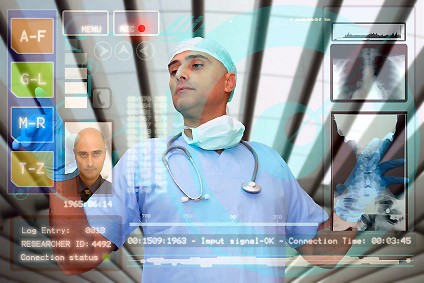A career in Health Information Technology is one of the fastest growing opportunities available today. With the increasing complexity in the healthcare market, people who have a passion for computer science and medical technology can find the perfect career in health information technology. Sometimes this career is also known as health information management.
A Career in Healthcare Information Technology (HIT)
Professionals with a degree in health information technology (HIT), will become intimately familiar with the data surrounding individual patient’s health care records. From evaluation, to completeness, to accuracy to organization of data to confidentiality and sharing of data the HIT professional will be involved in all this data storage and manipulation.
Additionally, each IT professionals will optimize processes inside of healthcare organizations. As more organizations transition from written documentation to electronic systems, medical technicians require more specialized responsibility in training. This will be the responsibility of the HIT professionals.

Benefits of a Healthcare Information Technology Degree
There are several benefits for entering a career in health information technology, including;
Lowering Healthcare Costs
Lowering health care costs. Because of the intimate knowledge the HIT professional has of all the data, they are able to identify efficiencies and cost savings opportunities for their healthcare organization.
Maximize Healthcare Efficiency
Helping to maximize healthcare efficiency. As process experts, HIT professionals understand the inner workings of the organization. Because of this intimate knowledge, they are able to recommend and implement process improvements which provide overall efficiency gains for the organization.
Eliminating Avoidable Mistakes
Eliminating avoidable medical mistakes. The ability to correct avoidable mistakes involves having the correct information available when it is needed. The HIT professional is responsible for getting this accurate data into the hands of the healthcare professionals at the right time, accurately. By doing this, avoidable mistakes will be eliminated.
Save Money
Saving millions of dollars per year. Because the HIT professional has their finger on the pulse of the overall operation and data manipulation of the healthcare organization, they are able to save significant money by eliminating and adjusting processes.
Helping People
Helping people in a measurable way. Is part of the healthcare organization, the HIG professional is responsible for the overall care of patients. Although they may be in the background, their influence is always noticeable to each patient based on the importance of the data and technology that they supplied to the healthcare workers who are responsible for patient care.
Licensing and Certifications
In addition to a degree in health information technology, there are other licensing and certification programs available. The American health information management Association offers certification of two types, one is called the registered health information technician and the other is the registered health information administrator. Each of these certifications are gained by passing exams. There is a cost for each of these exams ranging from $175-$300 depending on the level.
Career Advancement
There are many opportunities for career advancement within the health information technology (HIT) field. As a professional working in hospital or other large institution you have an opportunity to move to management and other leadership positions. Because of a HIT graduates intimate knowledge of the processes based on their understanding of technology, they will be perfectly suited for increased responsibility.
Job Outlook for Health Information Technology
The job outlook for individuals with the health information technology degree is fabulous. Positions should grow by 21% between 2010 and 2020. This is an estimate of an additional 78,000 job openings over the next 10 years.
Additionally, the government continues to fund programs that require new technology to be implemented in the healthcare system.
Below is a list of specific articles discussing the types of colleges and universities that provide college health degrees.
College and University programs preparing you for a career Nursing.
College and University programs providing a Masters in Nursing.
College and University programs preparing you for a career Healthcare Administration or Healthcare Management.
College and University programs preparing you for a career Healthcare Information Technology.
College and University programs preparing you for a career Dental Assistant.
College and University programs preparing you for a career Physical Therapy.